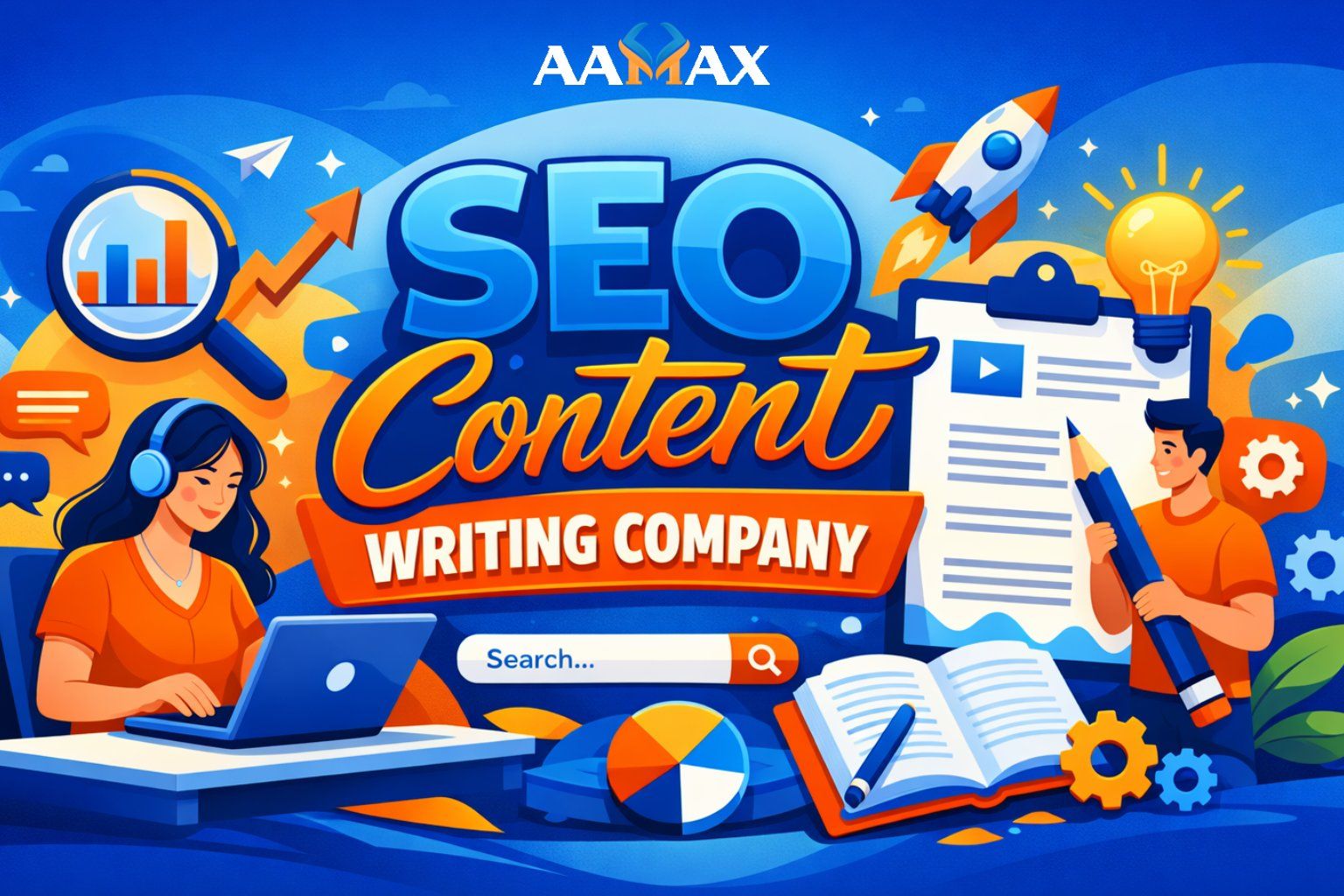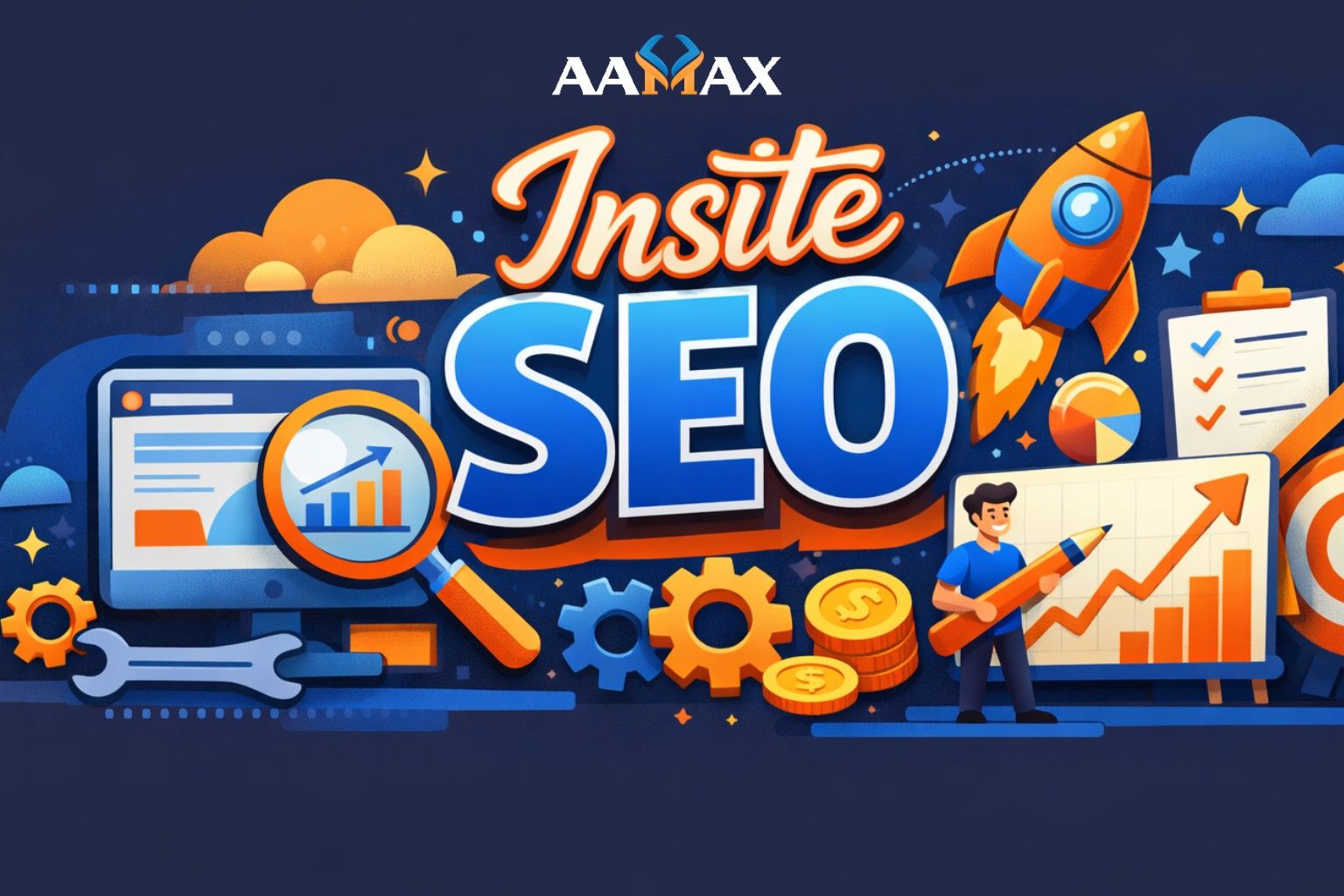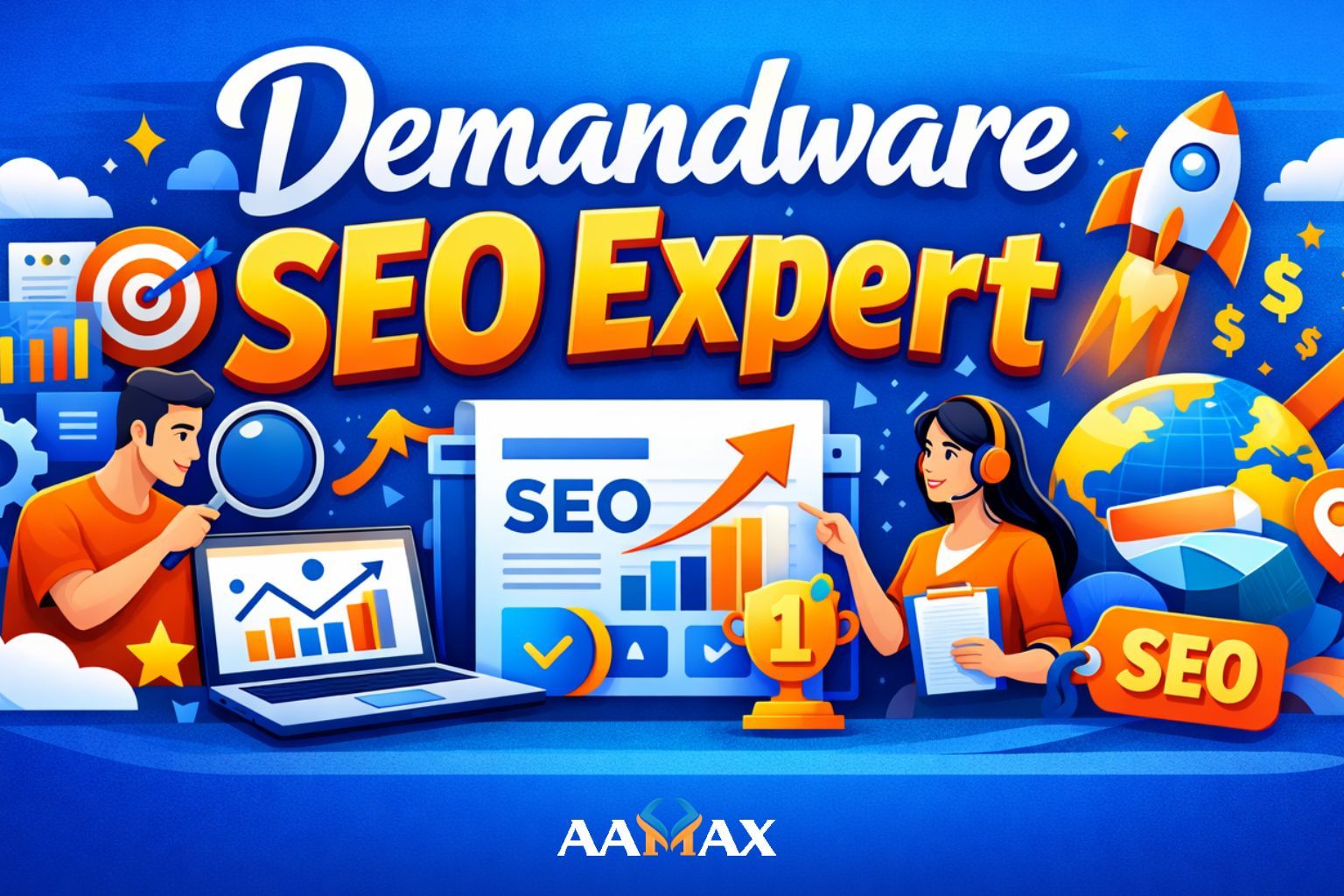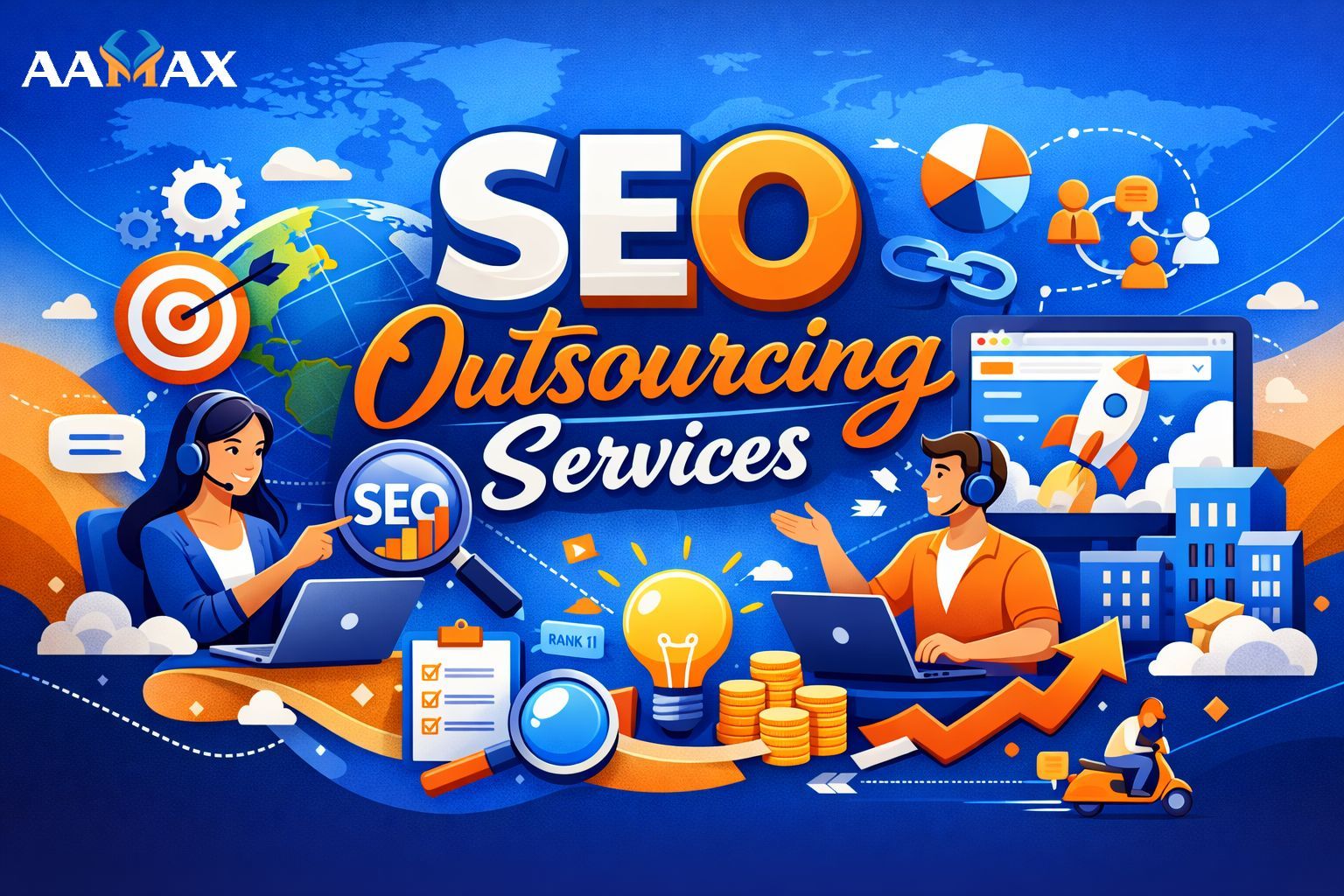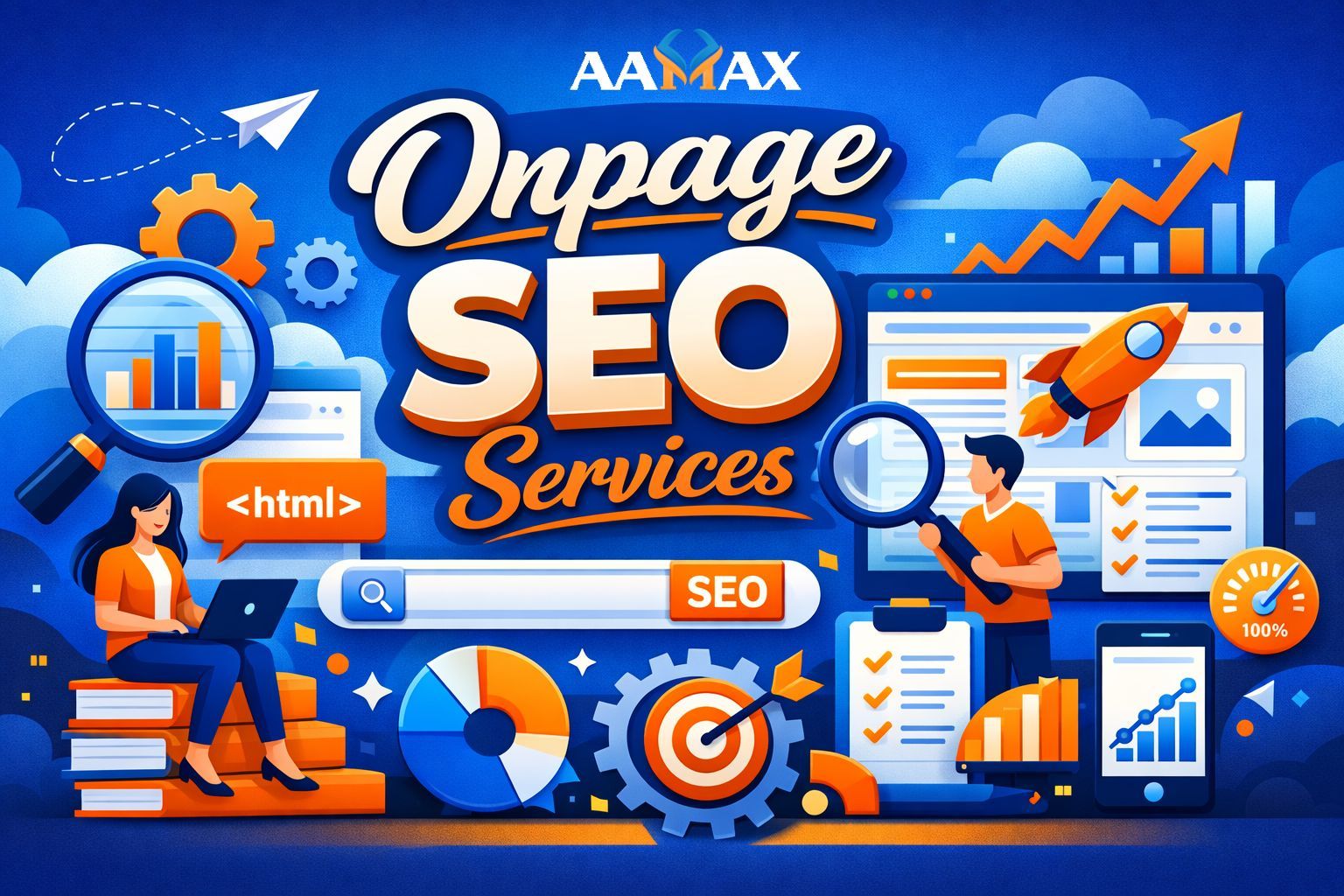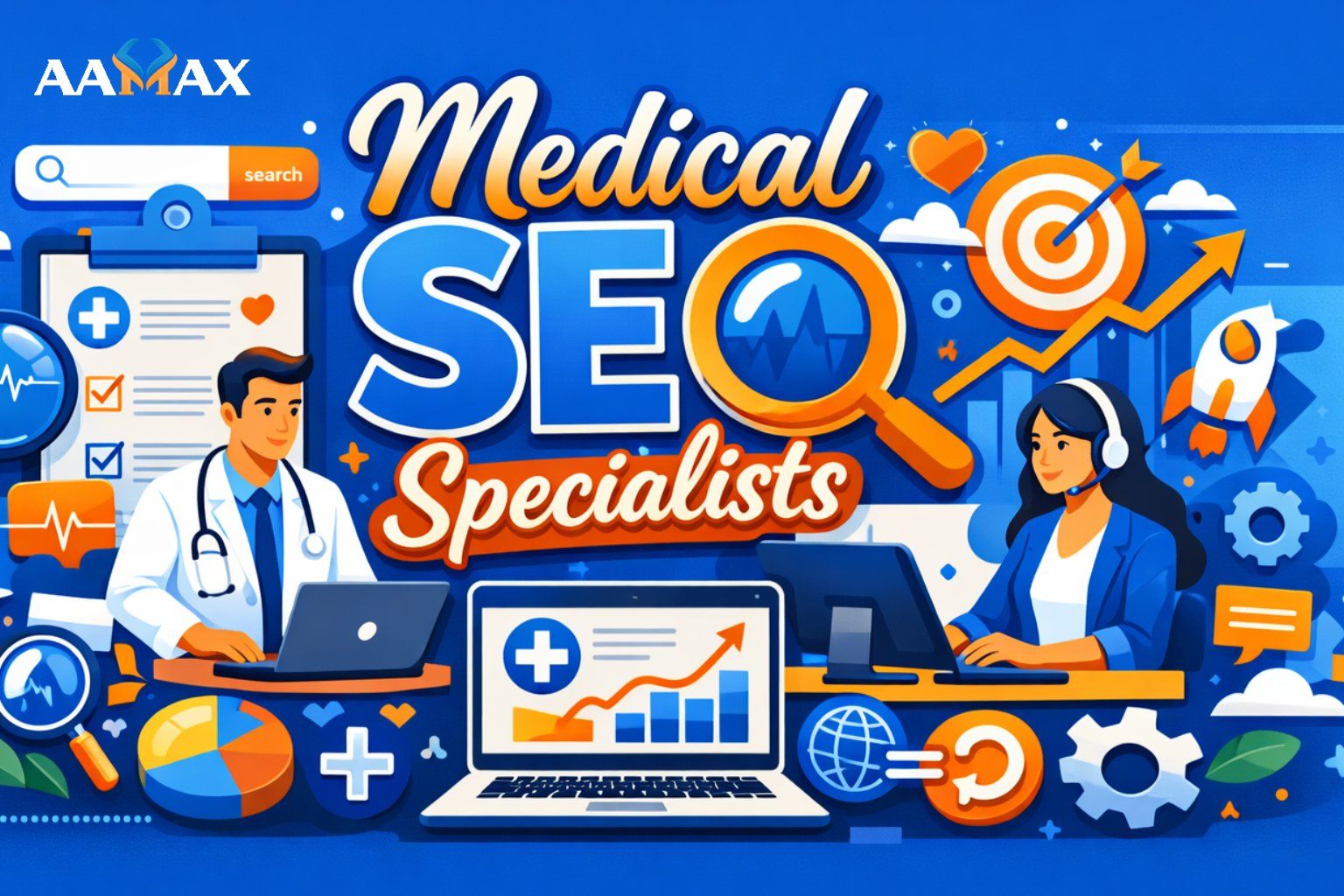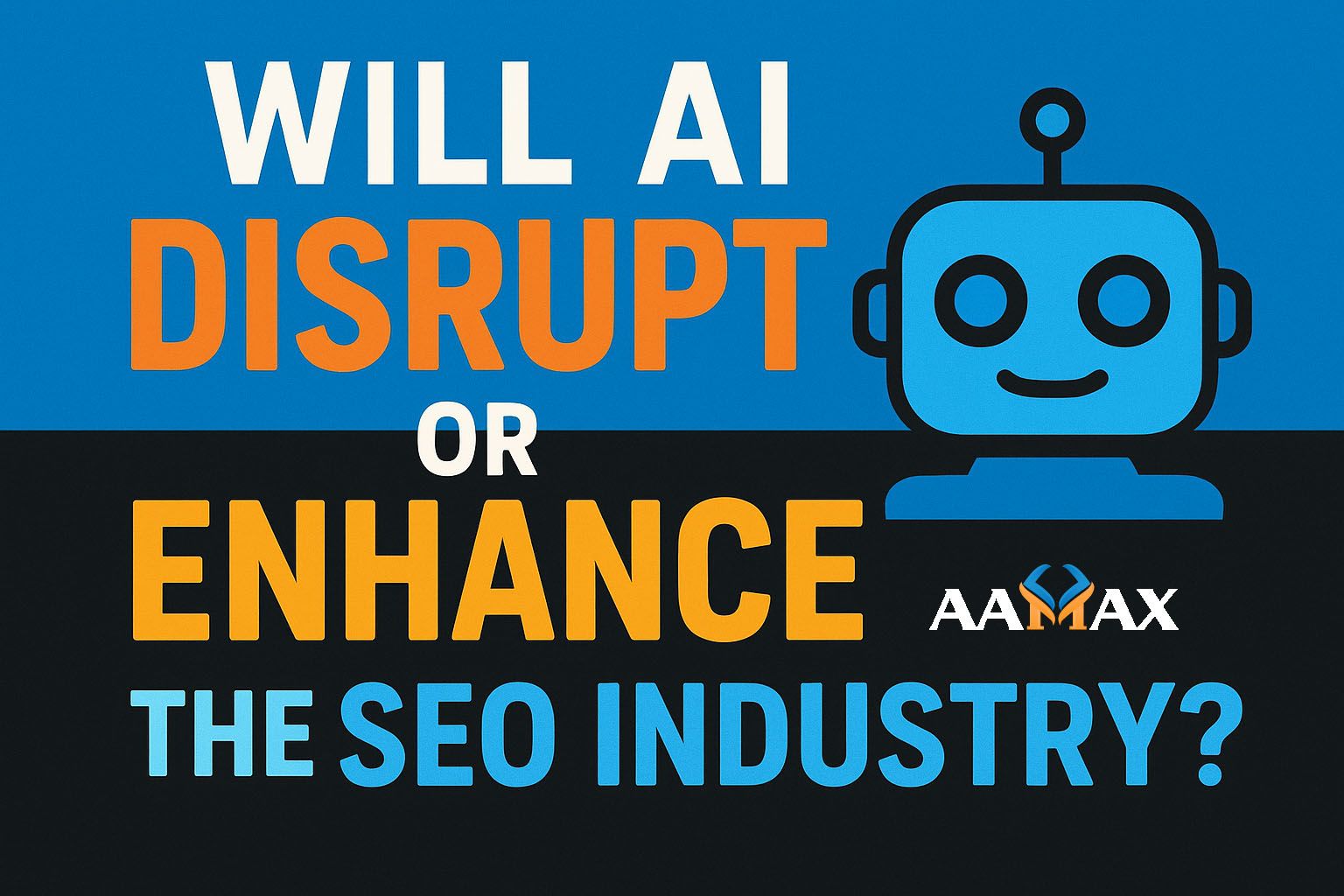
Will AI Disrupt or Enhance the SEO Industry?
Artificial intelligence (AI) has reshaped industries worldwide — from healthcare to finance, and now, digital marketing and SEO are at the center of its transformation. As AI tools and search algorithms evolve, the question dominating the SEO community is: Will AI disrupt or enhance the SEO industry?
While AI is undeniably changing how search engines work and how marketers approach optimization, it’s not a story of replacement — it’s a story of enhancement, evolution, and innovation. AI is redefining Search Engine Optimization (SEO), making it smarter, faster, and more user-focused. But the human element — creativity, strategy, and emotional intelligence — remains irreplaceable.
In this article, we’ll explore how AI is transforming SEO, the challenges and opportunities it brings, and what the future looks like for businesses navigating this AI-driven search landscape. If you’re looking to leverage AI SEO strategies to stay ahead, you can hire AAMAX — a full-service digital marketing company offering expert AI SEO, web development, and digital marketing services.
Understanding the Evolution of SEO
To grasp how AI is influencing SEO, it’s important to understand how SEO has evolved. Initially, SEO was simple — optimize your website with the right keywords, build links, and watch your rankings grow. But as search engines became more intelligent, SEO turned into a more complex, intent-driven discipline.
The Three Eras of SEO
- The Keyword Era (2000–2010): SEO was primarily about keyword density and backlinks. Search engines matched phrases literally rather than contextually.
- The Quality Era (2011–2018): Google’s major updates (Panda, Penguin, Hummingbird) emphasized high-quality, relevant content and punished manipulative tactics.
- The Intent Era (2019–Present): Algorithms like BERT, RankBrain, and MUM introduced natural language processing (NLP) and machine learning to interpret user intent more accurately.
Now, with AI-driven systems like Google Gemini and AI Overviews, search engines can generate dynamic answers, analyze content contextually, and predict user needs — redefining how SEO operates.
How AI Is Disrupting Traditional SEO
The disruption AI brings to SEO is both technological and philosophical. It’s changing not only how search engines rank content but also how marketers research, create, and optimize it.
1. AI-Powered Search Algorithms
Google’s algorithms are increasingly AI-driven. Tools like RankBrain and BERT introduced deep learning into search, enabling the engine to understand natural language and user intent instead of simply matching keywords.
Now, with Search Generative Experience (SGE) and AI Overviews, Google can generate summarized, conversational answers to queries — directly within the results page. This shift challenges traditional click-based SEO, as AI-generated summaries might reduce organic traffic to websites.
2. Content Automation and Generation
AI writing tools like ChatGPT and Jasper have made content creation faster and more accessible. Marketers can now generate drafts, outlines, and keyword-rich articles within minutes.
However, while AI can produce text efficiently, it often lacks the human depth, creativity, and emotional nuance that make content engaging and authentic. Overreliance on AI-generated content risks saturation, sameness, and loss of originality.
3. Personalized Search Experiences
AI allows search engines to tailor results based on user history, preferences, and location. This means SEO is no longer “one-size-fits-all.” Personalization affects visibility, making it harder for brands to dominate universally — they must instead focus on contextual relevance.
4. Voice and Conversational Search
The rise of voice assistants like Alexa, Siri, and Google Assistant has changed how people search. Queries are now conversational and question-based. AI understands and responds to these natural-language searches, forcing SEOs to optimize content for voice search and long-tail keywords.
5. AI-Generated Visual and Video Search
AI also powers visual search platforms like Google Lens, where users search using images. Optimizing visuals, alt text, and structured metadata has become an essential part of modern SEO strategy.
How AI Enhances SEO Capabilities
While AI introduces disruption, it also enhances SEO capabilities in powerful ways. AI doesn’t just change SEO — it makes it more precise, efficient, and predictive.
1. Smarter Keyword and Topic Research
AI tools can analyze massive datasets in seconds, uncovering search trends, semantic relationships, and untapped keyword opportunities that traditional tools might miss.
Instead of focusing solely on high-volume keywords, AI encourages targeting semantic clusters — groups of related terms that collectively improve topic authority and relevance.
2. Advanced Content Optimization
AI-driven platforms like SurferSEO, Clearscope, and MarketMuse analyze top-performing pages and provide data-backed optimization recommendations. They assess readability, sentiment, keyword use, and content gaps — helping creators write content that’s not only optimized but also aligned with user expectations.
3. Predictive SEO and Trend Forecasting
AI can identify emerging topics before they peak, allowing businesses to publish content ahead of competitors. Predictive analytics gives marketers a strategic edge — enabling them to capture traffic early and establish authority.
4. Better User Experience and Engagement
AI tools track user behavior metrics such as dwell time, bounce rate, and engagement patterns. This data helps SEOs refine site design, content layout, and internal linking to enhance user experience (UX) — a critical ranking factor in Google’s algorithm.
5. Enhanced Technical SEO
AI crawlers can now perform comprehensive website audits, detecting issues like broken links, duplicate content, or slow load times faster than ever. AI also helps with schema markup suggestions, mobile optimization, and core web vitals analysis, automating tasks that once required manual effort.
6. Data-Driven Decision Making
AI eliminates guesswork by transforming raw data into actionable insights. Machine learning can correlate metrics like traffic, backlinks, and conversion rates to determine what strategies actually work.
The Balance: Human Creativity Meets Machine Intelligence
AI is excellent at pattern recognition, automation, and data analysis. However, it lacks emotional intelligence, brand understanding, and storytelling ability. Successful SEO in the AI era requires a balance between human creativity and machine precision.
The Human Role in AI-Driven SEO
- Strategy and Vision: Humans define the goals and interpret AI insights within the context of a brand’s objectives.
- Emotional Engagement: AI can write, but humans connect. Content that moves people and builds trust comes from human experience.
- Ethical Oversight: AI-generated data can introduce bias. Humans ensure ethical use, accuracy, and originality.
- Brand Voice: Only humans can craft a voice that feels authentic, memorable, and aligned with a company’s personality.
The future of SEO belongs to those who know how to leverage AI as a collaborator, not a competitor.
The Challenges of AI in SEO
While AI presents immense potential, it also introduces challenges that businesses must navigate carefully.
1. Overreliance on AI Tools
Too much dependence on AI-generated insights or content can dilute creativity. Brands that rely solely on automation risk producing generic or repetitive content.
2. Algorithm Opacity
AI algorithms, including Google’s, are often “black boxes” — their inner workings are not transparent. This uncertainty makes predicting SEO outcomes more complex.
3. Content Authenticity and Trust
Search engines prioritize E-E-A-T (Experience, Expertise, Authoritativeness, and Trustworthiness). AI-generated content often lacks real-world experience, making it harder to establish genuine authority.
4. Increased Competition
AI makes SEO accessible to everyone, increasing content volume and competition. To stand out, brands must focus on unique value, authenticity, and originality.
5. Ethical and Legal Concerns
AI can unintentionally replicate biased data or infringe on intellectual property. Responsible implementation and human review are crucial to maintain integrity.
The Future of SEO in the AI Era
AI is not replacing SEO — it’s reinventing it into a smarter, faster, and more user-intent-driven practice. The SEO of the future will be about understanding how AI interprets, filters, and prioritizes information.
Here’s what the next decade of AI-driven SEO might look like:
1. Search Generative Experience (SGE) Optimization
As Google integrates generative AI into search, SEOs must optimize for AI-generated snippets and overviews. This means creating authoritative, fact-checked, and structured content that AI can easily reference.
2. Shift from Keywords to Entities and Topics
AI doesn’t rely solely on keywords — it understands entities and relationships. Future SEO will revolve around building topical authority rather than targeting isolated keywords.
3. Real-Time SEO Adjustments
AI tools will soon enable dynamic SEO, where websites adjust content automatically based on live data like user behavior or search trends.
4. Voice and Multimodal Search Dominance
SEO strategies will extend beyond text to include voice commands, visuals, and even video-based searches. Optimizing across multiple media types will become essential.
5. Ethical AI and Content Authenticity
Search engines will increasingly reward transparent, human-reviewed, and experience-based content. Authenticity will be a competitive advantage in an AI-saturated web.
How Businesses Can Adapt to AI-Driven SEO
Businesses that embrace AI intelligently will thrive. Here’s how to stay competitive:
- Integrate AI Tools Strategically: Use AI for research, data analysis, and optimization — not as a full content replacement.
- Focus on Human Creativity: Blend AI efficiency with authentic storytelling and brand identity.
- Invest in E-E-A-T: Build trust through expert content, credible sources, and consistent brand authority.
- Optimize for Emerging Search Types: Adapt to voice, visual, and generative search formats.
- Continuously Learn and Test: The SEO landscape is evolving rapidly — constant learning is the key to staying ahead.
Why Hire AAMAX for AI SEO Services
Navigating AI-driven SEO requires deep expertise, adaptability, and the right tools. That’s where AAMAX can help.
AAMAX is a full-service digital marketing agency specializing in AI-powered SEO, web development, and digital marketing solutions. The team combines human creativity with advanced AI analytics to build data-driven SEO strategies that drive measurable growth.
Whether you need to optimize for Google’s AI Overviews, improve technical SEO, or leverage predictive insights, AAMAX delivers results built for the next era of search.
Final Thoughts
So, will AI disrupt or enhance the SEO industry? The answer is both — but the enhancement far outweighs the disruption.
AI is revolutionizing how we understand search behavior, optimize content, and deliver user experiences. Yet, it still relies on human insight, authenticity, and strategy to succeed.
The future of SEO lies in the synergy between AI and human intelligence. Businesses that embrace this partnership — blending automation with creativity — will dominate the search landscape in the years to come.
By understanding how to work with AI rather than against it, SEO professionals can ensure that the evolution of AI becomes an opportunity, not a threat — one that leads to smarter, more effective, and more human-centered digital marketing.

